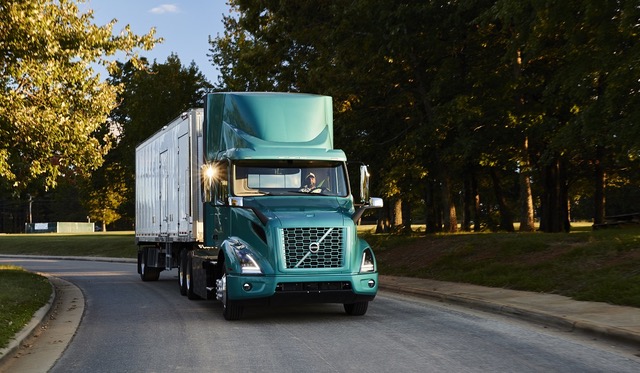Long Beach-based electric trucking and charging infrastructure company WattEV has entered a partnership with Uber Freight and Commonwealth Handling Equipment Pool to deployed electric trucks on select Southern California shipping routes.
Under the terms of the partnership, which was announced last month, Uber Freight and its client Chep, a manufacturer of pallets and industrial containers, will use trucks supplied by WattEV.
The electric truck pilot program is the first of its kind in the United States and is Uber Freight’s first electric vehicle deployment.
WattEV makes electric class 8 trucks accessible for all carriers and owner-operators and includes maintenance and charging depots for the trucks. A class 8 truck has a weight rating exceeding 33,000 pounds.
The company’s charging depots are still under construction, but its Long Beach site will be finished within the next two months. Depots in San Bernardino, Gardena and Bakersfield will follow shortly afterwards.
WattEV Chief Executive Salim Youssefzadeh said that the goal for his company is to position Uber Freight as a freight brokerage of choice, one that can identify what clients and loads would be best for WattEV given the limitations of its trucks.
Financial terms of the partnership were not disclosed, but Youssefzadeh shared how WattEV turns a profit from it.

“On the transport side, where we’re moving the freight for the customers, we make revenue just on moving that load,” Youssefzadeh said. “The shipper pays Uber (Freight) and then Uber (Freight) acts as a broker, takes some commission and then the flow of money moves between the shipper, Uber (Freight) and us.”
Conversations about the partnership began last October and as of now, two heavy duty Nikola electric trucks have been active in the pilot deal.
WattEV has 50 electric trucks due later this year from an order it made with Volvo early last year. It is working on securing an additional 12 trucks, according to Youssefzadeh.
Youssefzadeh said what Chep and Uber Freight get out of the partnership is progress on their net-zero goals without much effort.
“Our business relies on heavy-duty road transport, which is one of the biggest challenges to transition our value chain to net-zero emissions by 2040, Chep’s long-term decarbonization goal,” Marisa Sánchez Urrea, director of global supply chain decarbonization at Brambles, Chep’s parent company, said.
“Our (larger) goal is to demonstrate the capabilities of these trucks on certain (shipping) lanes,” Youssefzadeh said. “Especially as we grow our network right and create zero emissions corridors going all the way up to Northern California.”
Chep was founded in 1958 and is based in Australia.
